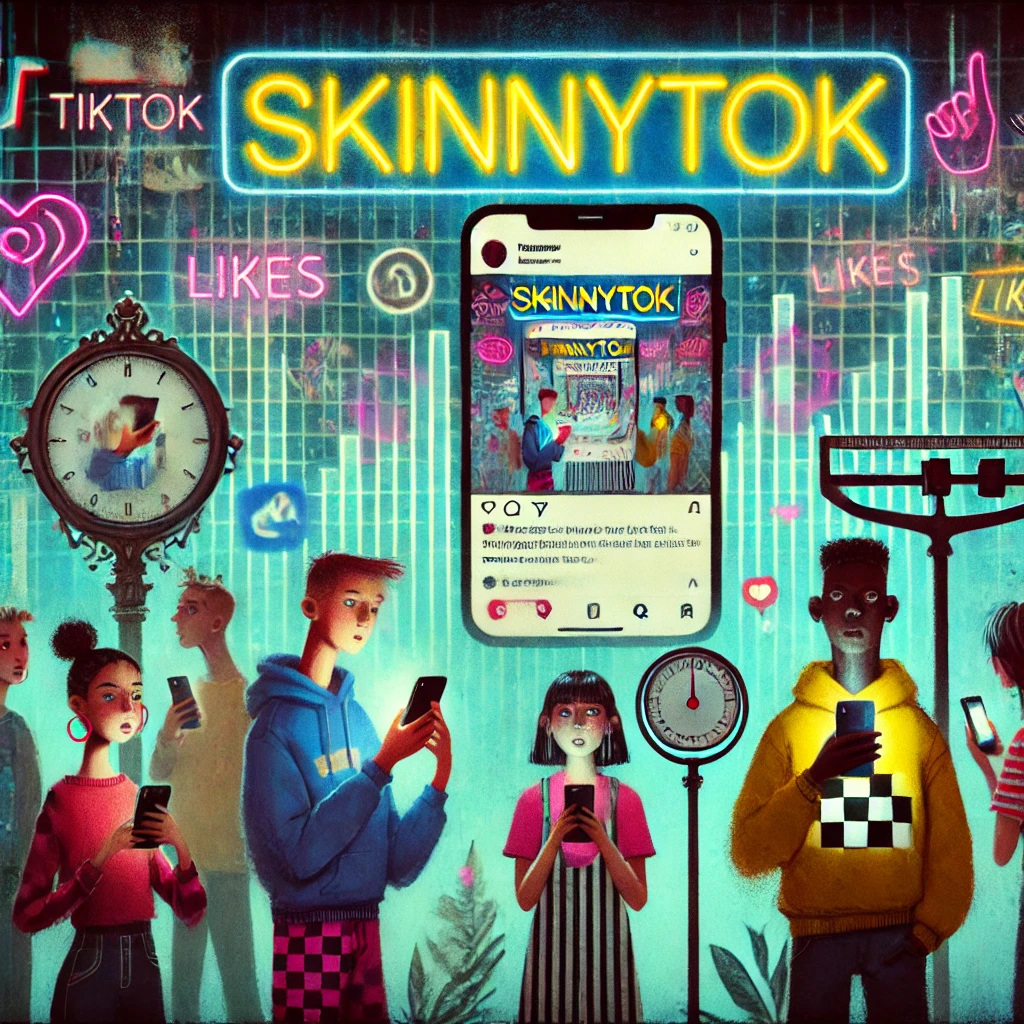A dangerous subculture known as “SkinnyTok” is rapidly spreading across TikTok, Instagram, and Reddit, normalizing extreme thinness and harmful eating practices. With over 43,000 posts under the hashtag, this trend—dominated by teens and young women—promotes toxic weight-loss advice disguised as empowerment, raising alarms among health experts and policymakers worldwide.
What Is SkinnyTok?

SkinnyTok originated from a blend of historical thinness ideals and modern social media dynamics, spreading rapidly due to algorithmic amplification, viral content formats, and cross-platform sharing. Its appeal lies in its aesthetic presentation and the promise of quick transformation, but its normalization of extreme behaviors has made it a significant public health concern. SkinnyTok is a curated corner of social media where creators share content glorifying restrictive diets, excessive exercise, and “thinspiration” mantras. Key hallmarks include:
- Slogans like: “If your stomach is growling, pretend it’s applauding you” and “You don’t need a treat. You’re not a dog”.
- Videos promoting: Ultra-low calorie intake (as low as 500 calories/day), fasting, and replacing meals with fluids like coffee or water.
- Aesthetic appeal: Pastel visuals and “disciplined” lifestyles masking the severity of the advice1.
Despite TikTok’s pop-up warnings (“You are more than your weight”) and links to eating disorder resources, the algorithm continues to amplify harmful content.
Experts Sound the Alarm
Health professionals warn that SkinnyTok’s messaging ignores biological and psychological realities:
- Dr. Asim Cheema (Internal Medicine): Highlights risks like electrolyte imbalances, hormonal disruptions, and cardiac issues from extreme practices.
- Stephen Buchwald (Mental Health Expert): Notes the trend fosters shame by framing thinness as a matter of willpower, ignoring genetic and socioeconomic factors.
- MariaiH (Nutrition Specialist): Points out that crash diets often backfire, triggering metabolic slowdown and weight regain.
The Real Risks to Teens
Mental Health
- Anxiety and depression: Constant exposure to unattainable beauty standards fuels feelings of inadequacy.
- Body dysmorphia: Idealized images distort self-perception, increasing risks of obsessive behaviors.
- Disordered eating: Studies show even brief exposure to “thinspiration” content can trigger restrictive habits.
Physical Health
- Nutrient deficiencies: Extreme diets lack essential vitamins, harming energy levels and brain function.
- Hormonal chaos: Irregular periods, thyroid dysfunction, and metabolic damage.
- Cardiac risks: Electrolyte imbalances from starvation or overhydration can lead to arrhythmias.
Regulatory Backlash and Platform Accountability
Belgian Digitisation Minister Vanessa Matz has demanded that TikTok and the EU classify SkinnyTok as a “systemic risk” under the Digital Services Act (DSA), citing its algorithm’s role in trapping teens in harmful cycles3. While TikTok claims to moderate such content, critics argue its efforts are insufficient, as harmful videos remain easily accessible.
Voices from the Frontlines
Recovery advocates like Montoya, who survived an eating disorder, describe SkinnyTok as “shocking and unsettling.” In a viral response video, she emphasized:
“Thinness doesn’t equal happiness. My life improved when I stopped hating myself—not when I starved myself”.
How to Protect Teens
- Educate: Discuss the dangers of extreme dieting and the reality of body diversity.
- Monitor social media: Flag harmful content and encourage critical thinking about online trends.
- Promote joy-centered wellness: Shift focus from weight loss to nourishing meals, movement, and mental health.
SkinnyTok underscores the urgent need for platforms to prioritize user safety over engagement. As families and regulators push for accountability, the trend serves as a stark reminder: health cannot be measured by a number on a scale.



